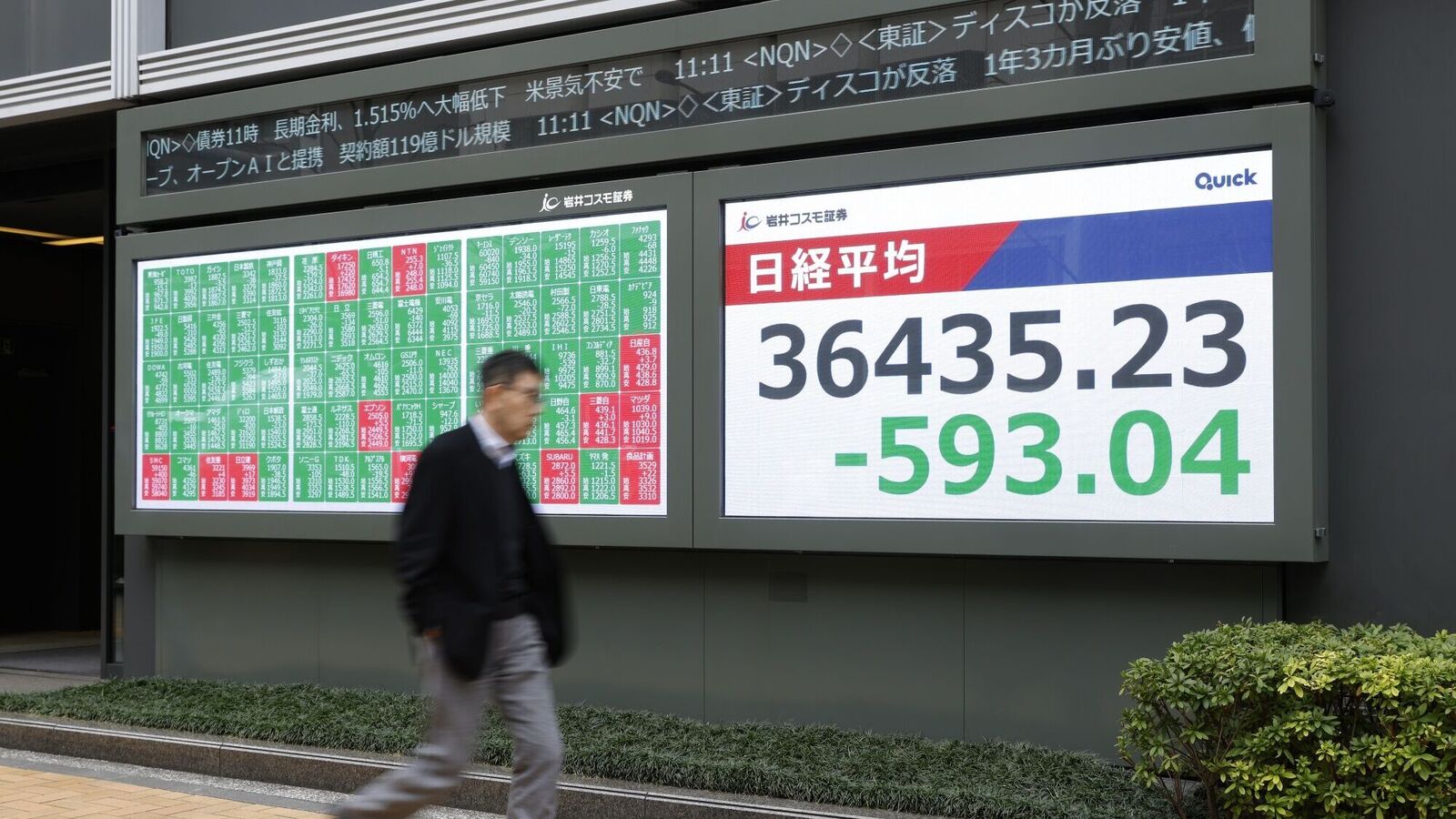Asian stock markets showed a notable recovery from earlier setbacks, rebounding after significant declines in the three primary US indexes. These downturns were largely driven by President Donald Trump’s controversial tariff proposals, which have added tension to the ongoing trade conflict. As a response to a 50% tariff on whiskey from the European Union, Trump threatened to impose a staggering 200% tariff on all alcoholic beverages imported from the EU, reaffirming his commitment to a broader set of tariffs set to take effect on April 2.
Positive Market Sentiment
On Friday, US equity-index futures began to rise, buoyed by the news that a government shutdown was likely to be averted. This optimism helped to uplift market sentiment across Asia.
- Japanese Shares: The Nikkei 225 climbed by 0.18%, while the broader Topix index increased by 0.29%.
- Australian Market: The S&P/ASX 200 index rebounded, gaining 0.35% after its previous session’s losses.
- Korean Market: The Kospi index faced a slight decline of 0.21%, whereas the small-cap Kosdaq experienced a significant surge of 1.72%.
- Hong Kong and China: The Hang Seng Index started the day with a 1.1% increase, and the CSI 300 in Mainland China turned around to rise by 0.97%.
US Market Influence
The pressure on Asian markets at the beginning of the day stemmed from a notable drop in US stocks, which fell due to President Trump’s escalating trade tensions. On Thursday, the S&P 500 plummeted by 1.4%, the Nasdaq 100 dropped 1.9%, and the Dow Jones Industrial Average fell by 1.3%. Notably, a measure of major tech companies saw a decline of 2.5%. While Adobe Inc. struggled with a disappointing forecast, Intel Corp. saw gains following the appointment of a seasoned executive as its new leader.
The Future of Asian Markets
According to Ross Maxwell, Global Strategy Operations Lead at VT Markets, advancements in technology in China, along with potential government stimulus, could bolster Asian stock performance. He noted:
"While trade wars and tariffs will impact global economies, no one benefits from further escalation. There are likely to be efforts to ease tensions."
Investors are beginning to shift their strategies, moving away from US stocks and looking towards international markets, particularly in Asia, to capitalize on growth opportunities. This pivot could support a rebound in Asian stock markets in the near term.
Staying Alert
However, the longevity of any short-term gains is contingent upon the longer-term implications of ongoing trade tensions. The current political climate can lead to abrupt market shifts, necessitating a dynamic approach to investment strategies. As the situation evolves, traders and investors must remain vigilant and adaptable.
In conclusion, the Asian stock markets are navigating a complex landscape influenced by both local developments and international trade dynamics. The potential for growth exists, but the path forward may be fraught with uncertainty.











